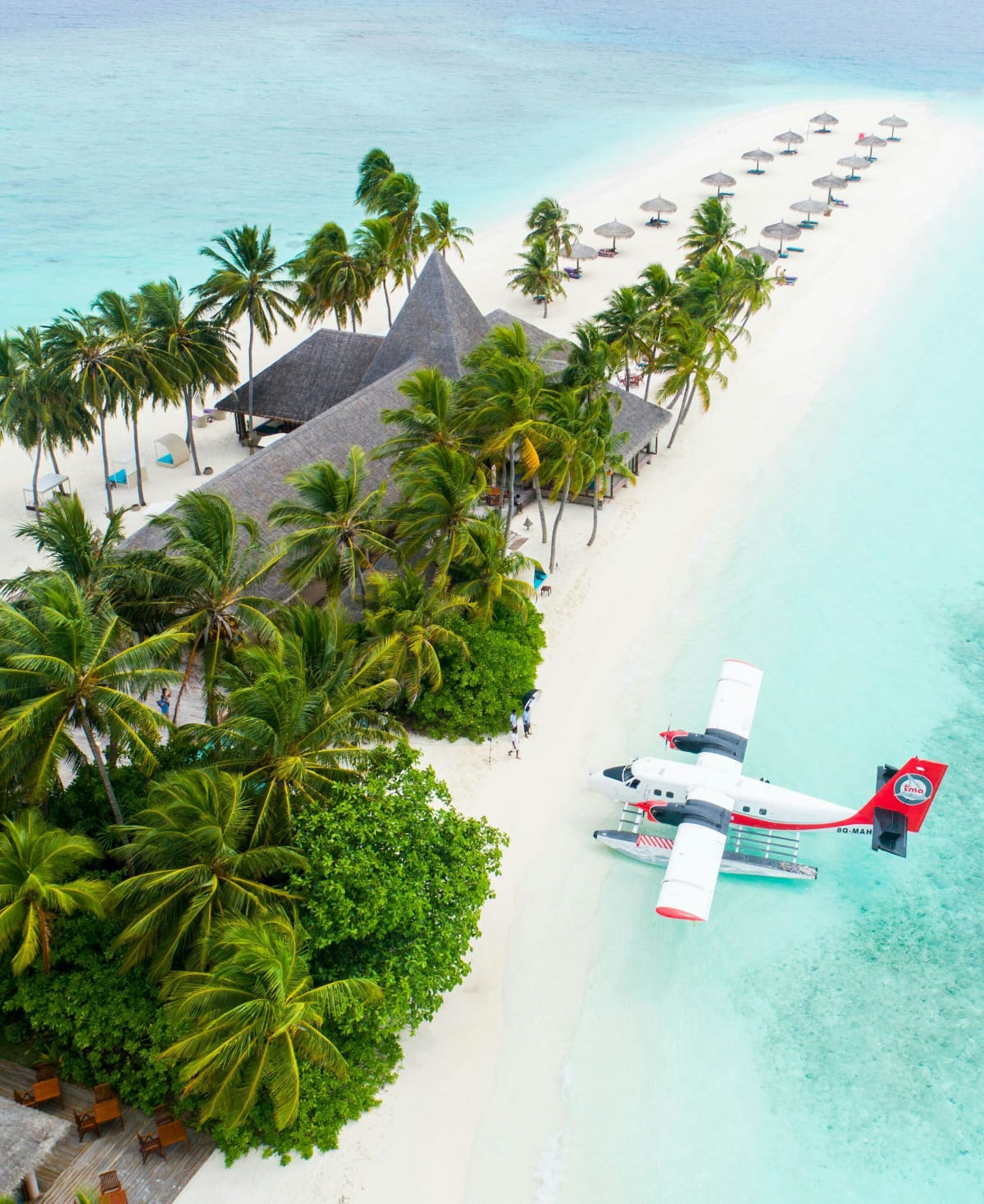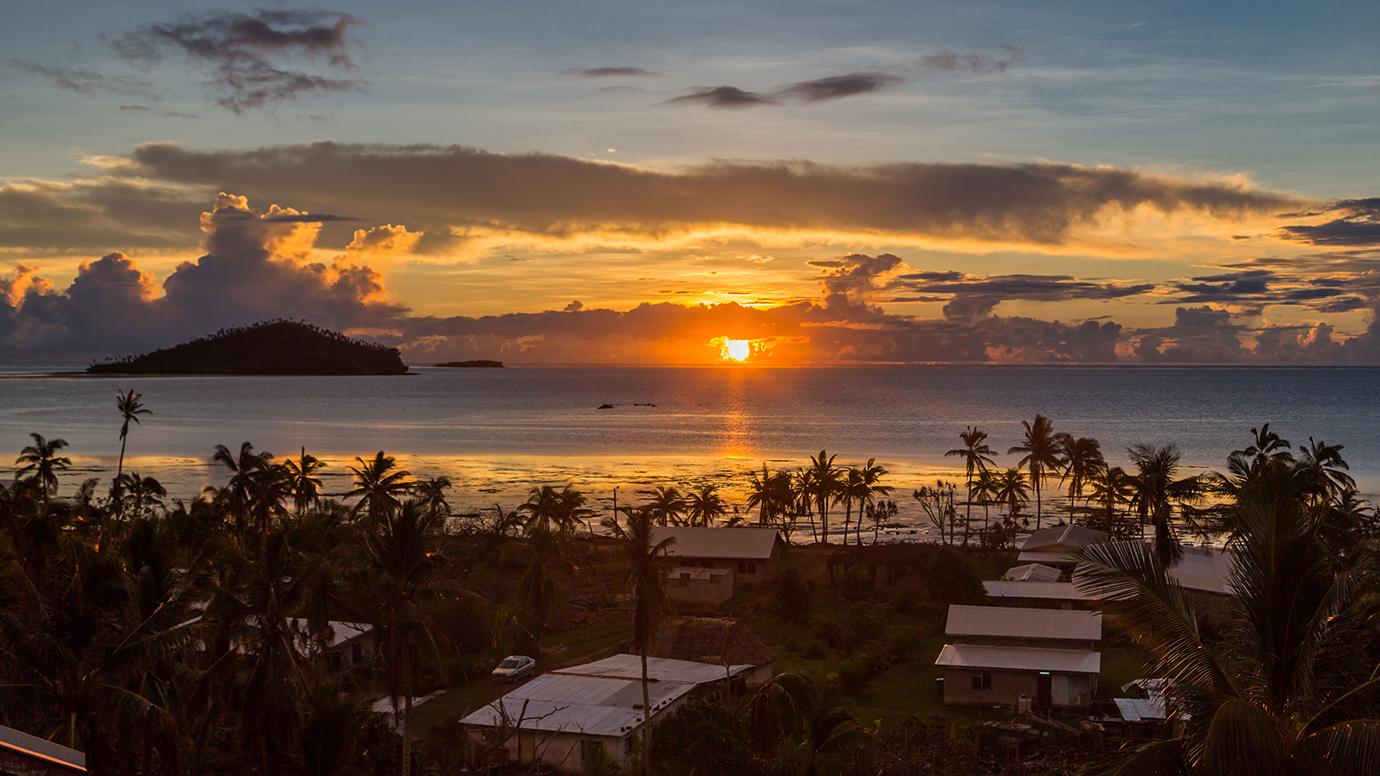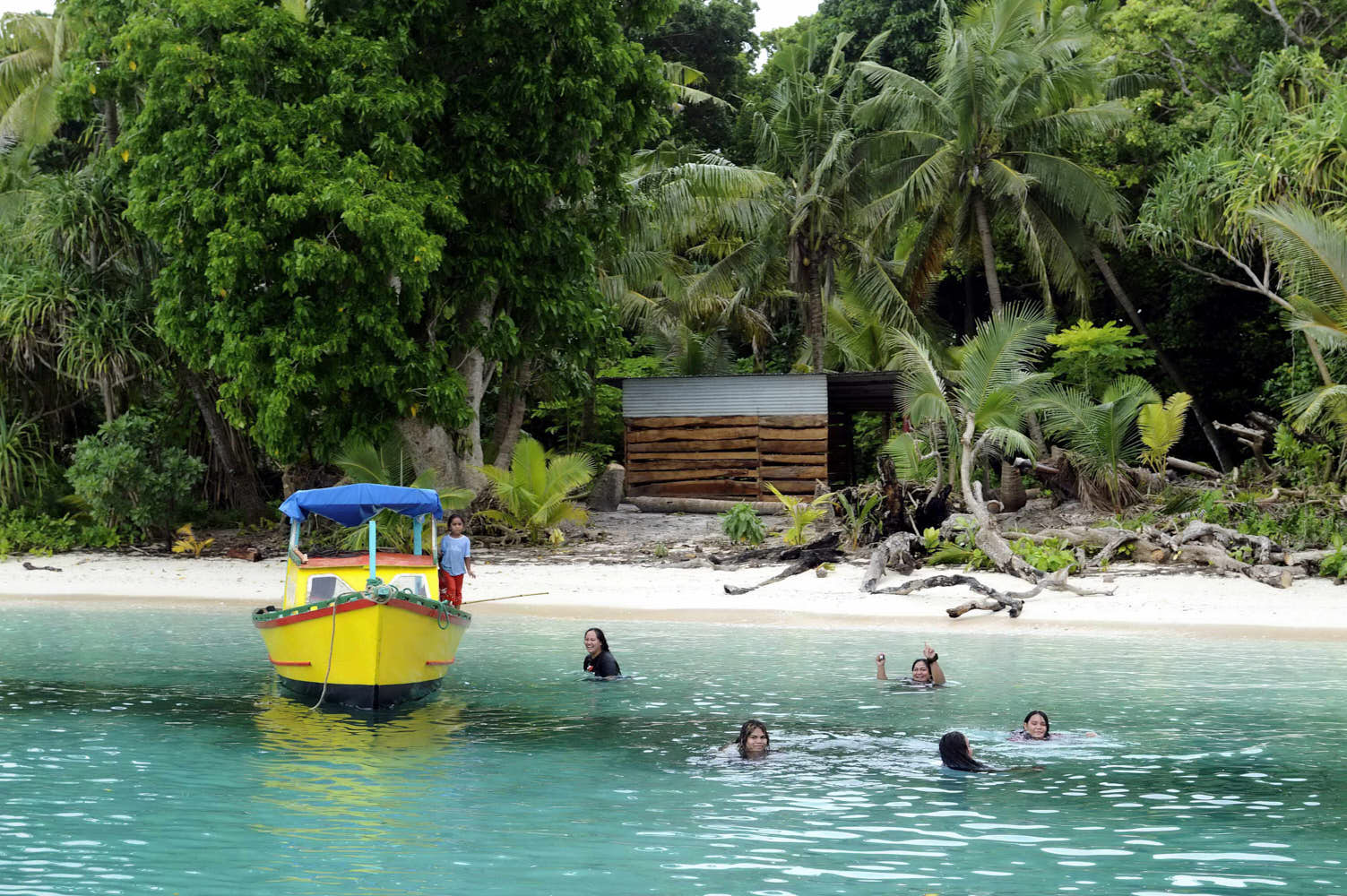Incorporate A Company In Wallis and Futuna Islands In 2025

Wallis and Futuna Islands lie between Fiji and Samoa, approximately 16,000 kilometres from mainland France. Governed as a French overseas collectivity since 1961, the islands operate under French law while preserving their traditional Polynesian chiefdom system. Each island has its own king and a council of chiefs who work alongside French administrators. This dual system of governance reflects the islands’ rich cultural history.
Economically, the territory relies on subsistence agriculture, fishing, and financial support from France. Tourism, while limited, offers potential for growth given the islands’ natural beauty and traditional Polynesian charm.
Standard of Living in Wallis and Futuna Islands
Wallis and Futuna offer a simple, peaceful lifestyle rooted in community and tradition. The standard of living, while modest compared to mainland France, is adequate for the small population.
Key Features:
- Community-Oriented Living: Life revolves around extended families and village communities, with a strong emphasis on mutual support and cultural preservation.
- Healthcare and Education: The islands benefit from French funding, which supports basic healthcare and education services. However, advanced medical care often requires travel to New Caledonia or France.
- Limited Infrastructure: Infrastructure development is modest, with basic utilities and limited transportation networks. Internet and telecommunications are improving but remain slower than in more developed regions.

While the standard of living is lower than in metropolitan areas, the islands’ natural beauty, low crime rates, and close-knit communities contribute to a high quality of life for residents.
Personal Taxes in Wallis and Futuna Islands
Wallis and Futuna offer significant tax advantages due to their status as a French overseas collectivity.
No Personal Income Tax:
Residents of Wallis and Futuna are exempt from French personal income tax. This makes the territory attractive for individuals seeking a tax-free lifestyle.
Social Contributions:
While there is no income tax, residents are subject to social contributions to fund healthcare, pensions, and other social services. These contributions are relatively low compared to mainland France.
Corporate Taxes in Wallis and Futuna Islands
The corporate tax system in Wallis and Futuna is simplified, reflecting the territory’s limited economic activity.
No Corporate Income Tax:
Businesses operating within Wallis and Futuna are exempt from corporate income tax. This tax-free environment provides incentives for small-scale enterprises and potential foreign investment.
VAT and Other Taxes:
A Value-Added Tax (VAT) is not imposed in Wallis and Futuna, reducing the financial burden on businesses and consumers. Import duties may apply to goods entering the territory, contributing to government revenues.
Major Industries in Wallis and Futuna Islands
The economy of Wallis and Futuna is modest, with limited diversification. However, several key industries sustain the local population and provide avenues for growth.

- Subsistence Agriculture
Agriculture is the backbone of the islands’ economy, with most residents relying on subsistence farming. Key crops include taro, yams, breadfruit, and bananas. Coconut production, primarily for copra, is also significant.
- Fishing
Fishing is another vital industry, supplying the local community with food and contributing to small-scale trade. While largely traditional, there is potential for growth in aquaculture and commercial fishing.
- Handicrafts and Cultural Products
The islands are known for their traditional Polynesian crafts, including weaving, wood carving, and tapa cloth production. These crafts are both a cultural expression and a source of income, particularly for women.
- Public Sector Employment
Much of the formal employment in Wallis and Futuna is in the public sector, funded by financial assistance from France. This includes education, healthcare, and administrative roles.
- Tourism
Tourism is underdeveloped but holds great potential. The islands’ natural beauty, vibrant traditions, and remote location appeal to niche markets, such as eco-tourists and cultural heritage enthusiasts.
Inflation and Cost of Living in Wallis and Futuna Islands
Inflation Trends
Inflation in Wallis and Futuna is relatively low, but the cost of living is influenced by the territory’s reliance on imported goods. Transportation costs for imports from France, New Caledonia, and other countries contribute to higher prices for certain goods.
Cost of Living
- Housing: Housing is affordable, with most residents living in family-owned homes. Expats may face higher costs for renting properties with modern amenities.
- Food: Locally grown produce and seafood are inexpensive, but imported goods, including packaged foods and household items, can be costly.
- Utilities and Transportation: Utilities are reasonably priced, though transportation options are limited due to the islands’ remote location.
While the cost of living is higher than some Pacific nations, it is manageable, especially for those who adapt to a simpler lifestyle and rely on local resources.
Property Tax, Services Tax, and Sales Tax in Wallis and Futuna Islands
Wallis and Futuna offer significant tax advantages due to their status as a French overseas collectivity:
- Property Tax
The islands do not impose a traditional property tax, which makes owning land or property financially attractive. This is a key benefit for both locals and expats looking to invest in real estate.
- Services Tax and Sales Tax
Wallis and Futuna do not levy a general services tax (GST) or sales tax. This simplifies financial transactions and reduces the overall cost of goods and services. However, some import duties may apply to goods brought into the territory.
- Other Taxes
There are no income taxes or corporate taxes, creating a tax-friendly environment for residents and businesses.
Types of Business Entities in Wallis and Futuna Islands
The business environment in Wallis and Futuna accommodates various types of entities, each with its own benefits:
- Sole Proprietorship
Ideal for small-scale entrepreneurs, sole proprietorships are simple to establish and manage. The owner is fully responsible for the business’s liabilities.
- Partnerships
Partnerships allow two or more individuals to collaborate on a business venture. They can share profits, responsibilities, and liabilities.
- Limited Liability Companies (LLCs)
LLCs are suitable for businesses seeking liability protection. This structure separates personal assets from business debts, providing added security for owners.
- Cooperative Societies
Cooperatives are common in agriculture and handicrafts, allowing members to pool resources and share profits.
- Nonprofit Organizations
Nonprofits focus on community development and cultural preservation, often supported by local and international funding.
Licenses to Start a Business in Wallis and Futuna Islands
Starting a business in Wallis and Futuna involves obtaining the necessary licenses and adhering to local regulations:
- Business Registration
All businesses must register with local authorities to obtain a business license. This process ensures compliance with French law and local regulations.
- Industry-Specific Licenses
Certain industries, such as fishing and tourism, may require additional permits. These are typically issued by relevant government departments or local councils.
- Environmental Permits
Businesses with potential environmental impacts, such as construction or tourism projects, may need approval from environmental authorities.
- Work Permits for Expats
Expat entrepreneurs must secure work permits to operate legally. The process is straightforward, especially for businesses contributing to the local economy.
Opportunities for Expats for Business Growth in Wallis and Futuna Islands
Despite its modest economy, Wallis and Futuna offer unique opportunities for expatriates:
- Tourism Development
With its untapped tourism potential, expats can invest in eco-lodges, guided tours, and cultural experiences. The islands’ natural beauty and traditional culture are key selling points.
- Sustainable Agriculture
Expats with expertise in organic farming or agro-processing can contribute to the agricultural sector, focusing on value-added products like coconut oil and kava.
- Handicraft Export
There is an opportunity to commercialize traditional crafts for international markets, promoting cultural heritage while creating economic value.
- Renewable Energy
The islands’ reliance on imported fuels presents an opportunity for expats to invest in renewable energy projects, such as solar and wind power.
- Digital Services
The growing global demand for remote services creates opportunities in IT, e-commerce, and digital marketing.
Citizenship for Expats in Wallis and Futuna Islands
As a French overseas collectivity, Wallis and Futuna offer pathways to French citizenship for expats:
Eligibility for Citizenship:
- Residency Requirement: Expats must reside in Wallis and Futuna or other French territories for several years to qualify.
- Naturalization: Applications for French citizenship can be made through naturalization, requiring integration into the local community and proficiency in the French language.
Benefits of French Citizenship:
- Visa-Free Travel: French citizens enjoy visa-free access to over 180 countries, including the European Union and Schengen Area.
- Access to French Social Services: Citizens benefit from healthcare, education, and retirement schemes under the French system.
- Dual Citizenship: France allows dual citizenship, enabling expats to retain their original nationality.
Why Register a Company in Wallis and Futuna Islands
- Tax-Free Benefits
Wallis and Futuna do not impose personal or corporate income taxes, making it an ideal jurisdiction for businesses seeking to maximize profitability. Additionally, the absence of property and sales taxes further reduces the financial burden on entrepreneurs.
- Strategic Location
Situated in the South Pacific, Wallis and Futuna lie between Fiji and Samoa, providing access to regional markets. This location is advantageous for businesses targeting the Pacific Islands and nearby nations.
- Simplified Regulatory Environment
As a French overseas collectivity, Wallis and Futuna operate under French administrative law. While compliance is required, the regulatory framework is straightforward and business-friendly, ensuring ease of setup and operation.
- Untapped Market Potential
With an economy centered on subsistence agriculture and fishing, there are numerous opportunities to introduce innovative products and services. Tourism, eco-tourism, and renewable energy are sectors with significant growth potential.
- Cultural and Economic Support
The local population values community-focused initiatives, providing a welcoming environment for businesses that aim to support development and sustainability.
How to Register a Company in Wallis and Futuna Islands
Starting a business in Wallis and Futuna involves a straightforward registration process:
Step 1: Choose a Business Structure
Decide on the type of business entity you wish to establish, such as:
- Sole Proprietorship
- Limited Liability Company (LLC)
- Partnership
- Cooperative
Step 2: Select a Business Name
Ensure the business name complies with French naming regulations and is not already in use. A name search can be conducted through the relevant authorities.
Step 3: Prepare Documentation
Required documents typically include:
- Identification documents for all owners or directors
- Memorandum and Articles of Association
- Proof of registered office address
- Business plan (for certain industries)
Step 4: Submit Application
Submit the application to the local administrative office responsible for business registrations. Depending on the business type, additional approvals may be required.
Step 5: Obtain a Business License
All businesses must obtain a general business license, which validates the entity to operate within the territory.
Step 6: Open a Bank Account
Set up a local bank account to manage financial transactions. Many businesses opt for accounts with banks that operate in other French territories for greater convenience.
Cost to Register a Business in Wallis and Futuna Islands
The costs associated with registering a company in Wallis and Futuna are minimal compared to other jurisdictions:
- Registration Fees
- Business registration fees typically range from €150 to €500, depending on the business type and size.
- Additional fees may apply for name reservations or specific approvals.
- Annual Fees
- Businesses are required to renew licenses annually, with renewal costs ranging from €100 to €300.
- Professional Services

Many entrepreneurs hire legal or consulting services to ensure compliance with French administrative requirements. These services can cost €500 to €2,000, depending on the complexity of the setup.
- Other Costs
- Rental fees for office space or commercial property.
- Costs for permits, such as environmental clearances or industry-specific licenses.
Relation with Other Countries of Wallis and Futuna Islands
- French Governance
Wallis and Futuna’s status as a French overseas collectivity ensures strong ties with France. Businesses benefit from the legal protections and administrative support associated with French governance.
- Regional Trade
Wallis and Futuna engage in trade with nearby Pacific nations, including Fiji, Samoa, and New Caledonia. The islands’ strategic location enables access to regional markets, particularly for agricultural products and handicrafts.
- International Aid
The economy of Wallis and Futuna is supported by financial aid from France and international organizations. These funds contribute to infrastructure development and economic stability, creating a favorable business environment.
- Limited Global Connectivity
While the islands’ remoteness limits direct connections with global markets, partnerships with French territories like New Caledonia and Tahiti provide a gateway for international trade.
Any Other Taxes in Wallis and Futuna Islands
The tax system in Wallis and Futuna is simplified and offers significant advantages:
- No Corporate or Personal Income Tax
Businesses and individuals are exempt from income tax, making the territory a tax haven for entrepreneurs and investors.
- No Property Tax
Property ownership is not subject to annual taxation, reducing long-term costs for businesses and residents.
- No Sales or Value-Added Tax (VAT)
The absence of VAT or sales tax simplifies financial transactions and lowers the cost of goods and services for both businesses and consumers.
- Import Duties
Customs duties are levied on imported goods to generate revenue for the local administration. Rates vary depending on the type of goods and their origin.
- Social Security Contributions
Employers and employees contribute to social security funds, which support healthcare and pensions. Contribution rates are relatively low compared to mainland France.
Social Security in Wallis and Futuna Islands
As a French overseas collectivity, Wallis and Futuna benefit from France’s social security system, ensuring basic welfare for its residents.
Key Features:
- Healthcare Access: Residents have access to public healthcare services funded by French social security contributions. However, medical facilities are limited, and advanced treatments often require travel to New Caledonia or France.
- Pensions and Benefits: Citizens and long-term residents participate in France’s pension system, which provides financial support during retirement.
- Support for Workers: Employees and employers contribute to social security, which covers unemployment benefits, maternity leave, and other social programs.
The system ensures a safety net for citizens, though expatriates may need private insurance to cover healthcare and other benefits.
Weather, Climate, and Regional Safety
Weather and Climate:
Wallis and Futuna enjoy a tropical climate, characterized by warm temperatures and high humidity year-round:
- Wet Season (November-April): Heavy rainfall and occasional cyclones are common, with temperatures averaging 28-30°C.
- Dry Season (May-October): Cooler and less humid, with temperatures ranging from 24-27°C, making it the best time for outdoor activities.
The islands’ lush landscapes and coral reefs thrive in this climate, offering abundant opportunities for fishing, agriculture, and tourism.
Regional Safety and Security:
Wallis and Futuna are considered one of the safest territories in the South Pacific:
- Low Crime Rates: Crime is virtually nonexistent, reflecting the islands’ strong community values.
- Political Stability: The dual governance system, combining French administration and traditional Polynesian chiefdoms, ensures harmony and effective local leadership.
- Natural Disaster Preparedness: While cyclones and earthquakes are risks, the government has implemented disaster management systems to ensure residents’ safety.
The islands’ small size and cohesive society contribute to a secure and peaceful living environment.
Passport Power of Wallis and Futuna Islands
Residents of Wallis and Futuna hold French citizenship, granting them access to one of the most powerful passports in the world.
Key Benefits:
- Visa-Free Travel: French citizens enjoy visa-free or visa-on-arrival access to over 180 countries, including the European Union, Schengen Area, and the UK.
- Global Mobility: The French passport facilitates international travel for work, education, and leisure.
- European Union Benefits: French citizens can live, work, and study across EU member states, offering vast opportunities for personal and professional growth.
This global connectivity is a significant advantage for Wallis and Futuna residents seeking opportunities abroad.
Scope of Education, Growth, and Other Opportunities
Education:
Education in Wallis and Futuna is modeled on the French system, ensuring a high standard of instruction:
- Primary and Secondary Education: Public schools offer free education, with curriculums aligned with mainland France. French is the primary language of instruction, alongside local Polynesian dialects.
- Higher Education: Opportunities for tertiary education are limited on the islands. Most students pursue further studies in New Caledonia, France, or other French territories.
- Cultural Integration: Schools incorporate Polynesian traditions into their programs, preserving the islands’ heritage while preparing students for global opportunities.
Growth Opportunities:
- Tourism Development: The islands’ unspoiled natural beauty and rich culture present opportunities for eco-tourism and heritage tourism.
- Agriculture and Fishing: Expanding sustainable agriculture and aquaculture can bolster food security and create new economic opportunities.
- Renewable Energy: With an emphasis on sustainability, Wallis and Futuna are exploring solar and wind energy projects, offering potential for investment and innovation.
Quality of Life:
- Strong Community Ties: The islands’ close-knit society fosters a sense of belonging and support for residents.
- Natural Beauty: Pristine beaches, coral reefs, and lush forests offer an unparalleled quality of life for nature enthusiasts.
- Cultural Richness: Traditional ceremonies, crafts, and dances enrich daily life, creating a unique and vibrant cultural landscape.








